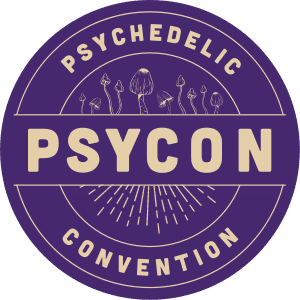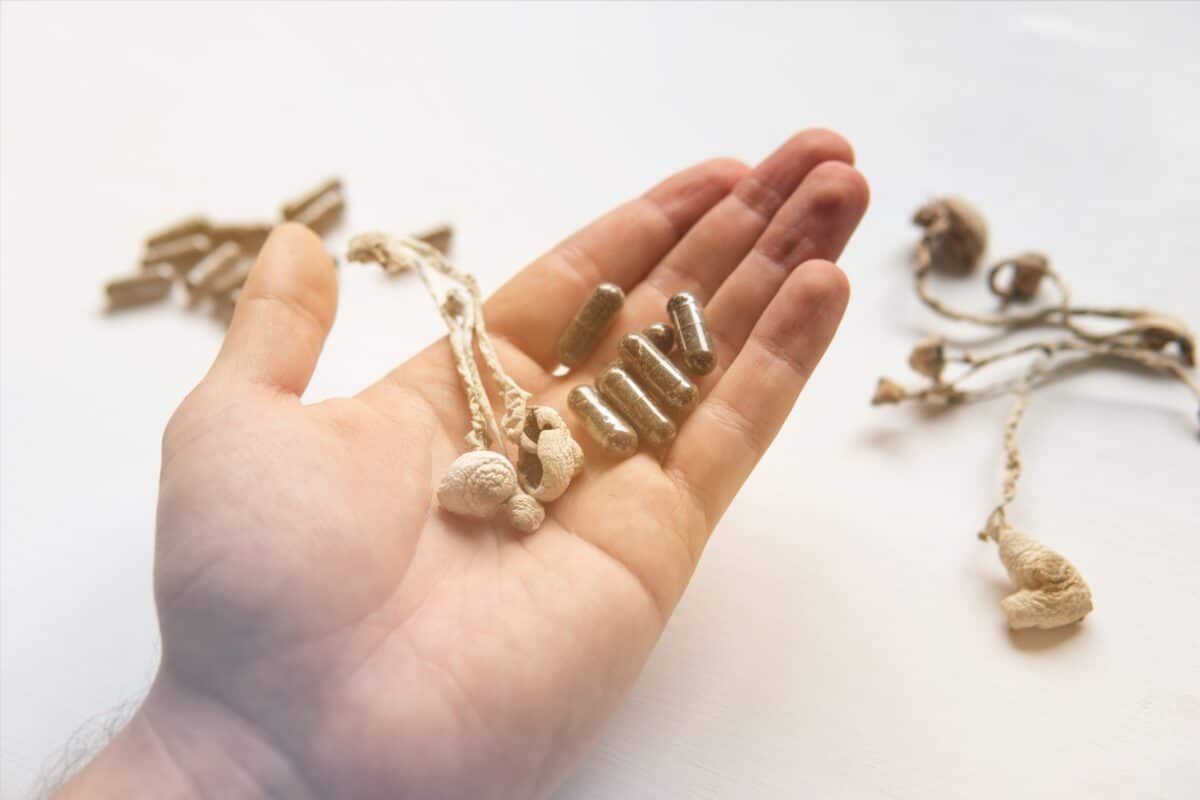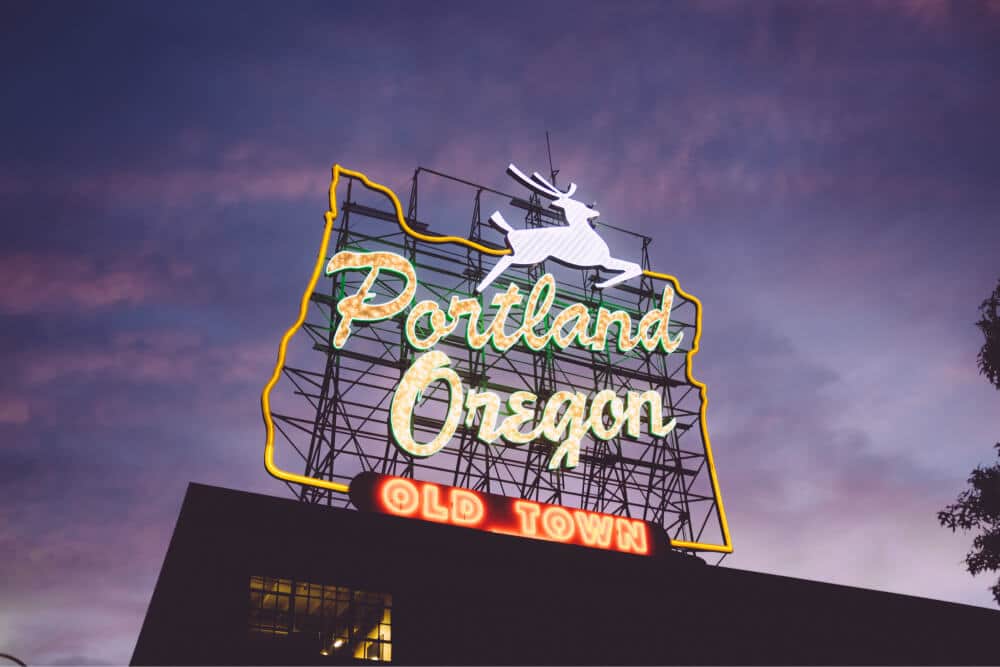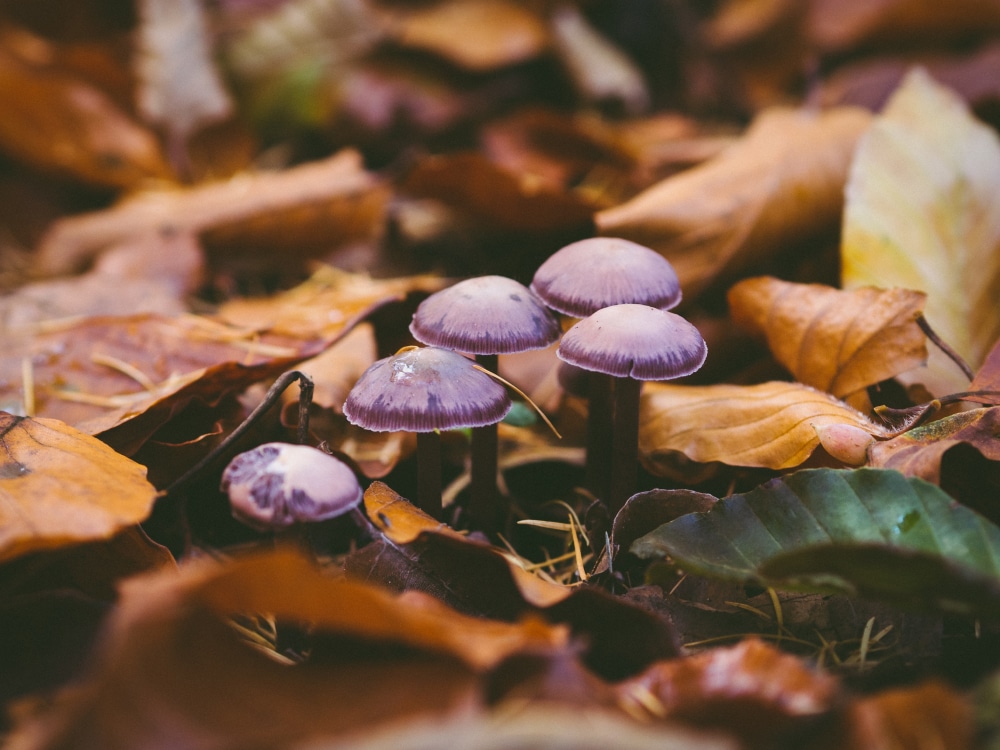Magic mushrooms – officially known as “psilocybin” mushrooms – are becoming increasingly popular with those interested in dabbling with psychedelics, and a great way to introduce yourself to the fungi is via microdosing.
Microdosing psilocybin has anecdotally been shown to be highly beneficial for mental and physical health, allowing the consumer to look inward and self-analyze more objectively. Psilocybin also helps us examine and navigate the world around us with fresh, renewed, accepting, and more empathetic eyes.
There are a variety of possible benefits that come along with microdosing mushrooms (a.k.a. shrooms), so if you’re interested in trying it for yourself, keep reading and utilize this as your official microdose guide.
What is a microdose?
Microdosing mushrooms is the act of taking a small amount of the psychedelic drugs – usually around one-tenth of a “full trip” dose, which is about two grams – at a time, experiencing the mental and physical benefits without actually hallucinating or “tripping.”
Larger doses of mushrooms will result in heightened senses, uplifted energy, possible hallucinations, and psychedelic visuals. On the other hand, a microdose will provide you with a calmer, more manageable version of this experience: slightly heightened senses, uplifted energy, and a refreshed perspective on life without the intense hallucinatory aspects.
Unfortunately, the fact that shrooms are federally illegal has held researchers back from really exploring the effects of microdosing psychedelics, but quite a few clinical trials have been conducted on the benefits of microdosing.
These studies have revealed that small doses of psychedelic drugs like mushrooms can result in an improved mood, a reduced sense of anxiety or stress, and a general boost to overall mental health.
Many people have turned to day-to-day magic mushroom microdosing to reap these benefits and more, enjoying a new approach to consciousness that allows them to challenge the norm, explore trauma and childhood wounds from a new lens, and ultimately reach their full potential.
The Benefits of Microdosing
Microdosing shrooms is known for providing consumers with a calmer, more manageable “trip” – a.k.a., no visuals, and milder senses of euphoria. But what sort of benefits can one reap from this level of consumption?
Increased Energy
One of the main reasons people microdose mushrooms: the reported energy boost that small amounts of psilocybin seem to provide.
Of course, more research needs to be conducted to further confirm this hypothesis, but many consumers claim to experience an increase in energy – and an overall improved mood – when taking small amounts of shrooms at a time.
Emotional Balance
A mood boost seems to accompany that energy boost for many consumers, which is another major reason microdosing has become increasingly popular.
A recent study found that psilocybin seemed to have a positive effect on mood, and overall mental health.
Improved Cognitive Skills
Recent cases of psilocybin therapy have also determined that the drug seems to have an enhancing effect on one’s cognitive and neural flexibility, which is especially beneficial to someone with major depressive disorder.
Mental Relief
Cognitive dysfunction can be a crippling side effect to common mood disorders (like depression or anxiety), and as we mentioned in the above point, microdosing shrooms is proving to be a powerful combative to these sorts of syndromes.
How to Start Microdosing
Want to start microdosing shrooms on your own? There are a few things you’ll want to familiarize yourself with before diving in, like how much of the drug to take, how often to take it, when to avoid it, and so on.
While a typical microdose will be about one-tenth of the 2-gram “full” dose, this can vary from person to person and depend entirely on your chemical makeup and tolerance level.
Unfortunately, you won’t always know how to define this until you’ve tried the drug at least once, so if it’s your first time trying mushrooms or another psychedelic substance, be prepared for the fact that you may feel stronger effects, and make sure you don’t have to do anything highly productive that day in case you’ve taken on more than expected.
American mycologist Paul Stamets has done an extensive amount of research on microdosing and its effects, and his method, known as the “Stamets Stack,” is a great way to approach microdosing as a new consumer.
Alternatively, if you’re into literature, you may benefit from checking out The Psychedelic Explorer’s Guide, written by psychedelics explorer James Fadiman. Although this book mainly concerns the effects of microdosing LSD, a lot of his psychedelic research and the subsequent advice can be transferred to the mushroom experience and vice versa.
Either way, we’ve outlined some of the most important things for you to consider when venturing on a microdose:
Obtain the mushrooms
The most obvious first step to microdosing magic mushrooms is to obtain them in the first place – but this can actually be a lot more difficult than it sounds, especially depending on your region and how readily available psilocybin is in your area.
Of course, any doses of psilocybin are entirely illegal on the federal level in the U.S., which can make it difficult (and even dangerous) to secure the drug.
Like the days of cannabis prohibition, interested consumers are forced to turn to underground sources for their magic mushrooms, and that comes with a certain level of risk.
It’s important to educate yourself as much as you can on shrooms before venturing out to buy some – especially if you’re purchasing from someone you aren’t personally familiar with (and honestly, even then). Know what they’re supposed to look like, smell like, feel like, etc., and you might be saving yourself from a world of trouble down the line.
Once you feel comfortable with your shrooms knowledge, you can either purchase from a trusted source or even grow some yourself. This allows you to know without a shadow of a doubt that you’re drawing from a reliable source – as long as you know what you’re doing with those spores.
Popular Mushroom Strains
Knowing what to look for with shrooms can vary depending on the strain you’re working with, so it’s important to familiarize yourself with the different types of psilocybin if you’re planning on purchasing some for consumption – or growing your own at home.
There are dozens of different strains of mushrooms – here are five of the most popular.
Blue meanies
“Blue meanies” – medically known as Panaeolus cyanescens – turn dark blue when picked, and are known for extreme potency. Once ready to consume, they’ll appear small, medium-sized, and somewhere within the color span of brown to white.
Flying saucers
Psilocybe Azurescens (or “flying saucers,” “blue angels,” or “azzies”) are perhaps the most commonly-known type of shroom. They have a thick stem, a brown/yellow cap, and are quite easy to cultivate.
Penis envy
As one might guess, “penis envy” mushrooms resemble…well, a penis. With a swollen, rounded cap and a thick stem, they’re known for powerful potency, which can result in particularly intense effects.
Golden teachers
“Golden teachers” are recognized for their mildness, and are typically turned to as a great introductory option for new users. They have rounded, gold-like caps and thick, beige or white stems.
Liberty caps
Psilocybe semilanceata – coined “liberty caps” – is one of the most widely distributed forms of magic mushroom found in nature. They’re known for extreme potency and are yellow or brown with a bell-shaped cap.
Figure out your dosage
When it comes to finding the right dosage for you, beginning with 0.1 or 0.2 grams is a good starting point, but as we mentioned earlier, this can vary from person to person.
In general, it’s always great to take the low-and-slow approach: a.k.a., beginning with as low a dose as possible and gradually increasing it. Remember: you can always take more shrooms, but you can’t go back on what you’ve already consumed.
Check in with yourself
Once you’re in for the microdose, utilize it for everything it’s worth and check in with yourself. How are your stress/anxiety levels affected by the drug? What is your mood like? How does it differ from what you’re like when you haven’t microdosed? How does it compare to what a full dose of shrooms is like for you?
Ask questions, get creative, and go with the flow.
Take notes
It might also be a good idea for you to document your experiences with microdosing, especially if you’re trying to figure out the perfect dosage and frequency of consumption for you.
Pay attention to how you feel and how you’re affected and write it down – it could help you in your future endeavors, and allow you to avoid making the same mistakes over and over again when it comes to consumption.
Microdosing Schedule
Building up a tolerance to magic mushrooms occurs surprisingly quickly. In his book, Fadiman recommends waiting at least three days between each microdose in order to fully experience the benefit of the approach. In his research, he wrote, “The first day you feel great. The second day you would feel half of that. And the third day you won’t feel anything.”
With this in mind, it might be helpful to map out a microdosing schedule that works best for you and your desired results.
This can vary from person to person depending on your body, your schedule, and your reaction to shrooms, but generally, it’s a good idea to take at least three days in between doses.
However, if you prefer to take a daily dose or even a dose every two days, keep in mind you may need to increase the dose to still feel the effects (i.e., 0.2 grams the first day, and 0.4 grams the second).
Legal Psilocybin Therapy: What to Expect
More people are recognizing shrooms’ abilities to relieve mood disorders, increase energy, and improve cognitive issues – especially when taken as a microdose.
Many consumers take their routine into their own hands, but in the state of Oregon – where psilocybin therapy was legalized earlier this year – people are able to turn to professionals to safely guide them through their experience. The therapy will soon be available in Colorado as well.
This is incredibly helpful – especially for someone who’s never taken shrooms before and has no idea what to expect. Here are some of the most important things to keep in mind and prepare for when trying psilocybin therapy for the first time:
Getting to know you
As with any therapy session, a psilocybin intake will begin with the therapist getting to know you as a patient: what your background is, what brought you in, and what you’re hoping to come away from your session (or sessions) with.
Receiving your dose
After this important trust-building groundwork, your therapist will administer your first dose of psilocybin. You’ll typically lie down in a comfortable room, preparing to lock in for however long the experience might take (which will vary depending on the dose you’re being prescribed). You may be asked to wear an eye mask or listen to some music to help you really hone in on your mind and body as the shrooms work their way through you.
Reflect, rinse, and repeat
Once the trip has been completed, you’re ready to reflect. Patients are typically encouraged to discuss their experience: what you saw or felt, and how the trip might have impacted your mental and/or emotional state.
Conclusion
Microdosing can provide a lot of benefits to your daily life, mental health, and awareness of the world around you. If done properly, it can also help increase your creativity and productivity, and improve your overall quality of life.










